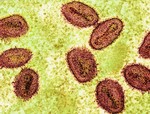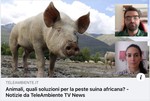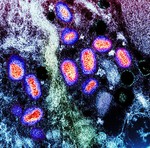Biography
Francesco Branda is an Adjunct professor at the Faculty of Medicine and Surgery at Campus Bio-Medico University of Rome. His research interests are diverse, spanning various domains such as data analytics, epidemic intelligence systems, and public health risk studies. To address these questions, he developed novel methods that combine techniques from mathematical modelling, and statistical inference (including AI and Machine Learning). His work focuses to epidemiological and statistical consulting in hospital settings, applying statistical and molecular methods in clinical settings, and analyzing climate-sensitive diseases like Dengue and Chikungunya and outbreaks and pandemics such as SARS-CoV-2, Mpox, and Ebola.
Education
PhD in Information and Communication Technologies, 2023
University of Calabria
M.Sc. in Computer Engineering, 2019
University of Calabria
B.Sc. in Computer Engineering, 2016
University of Calabria









